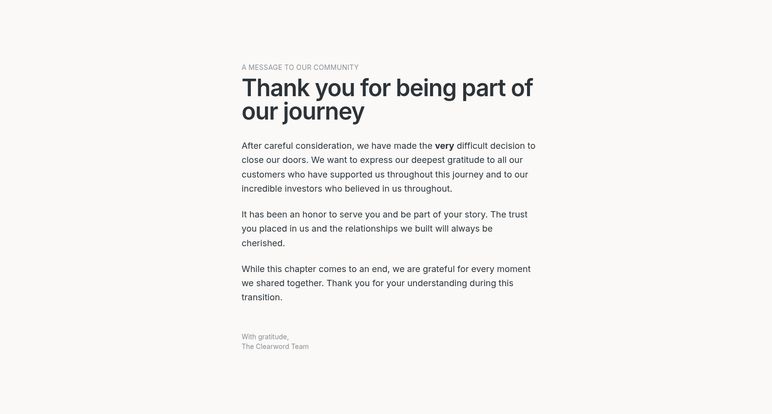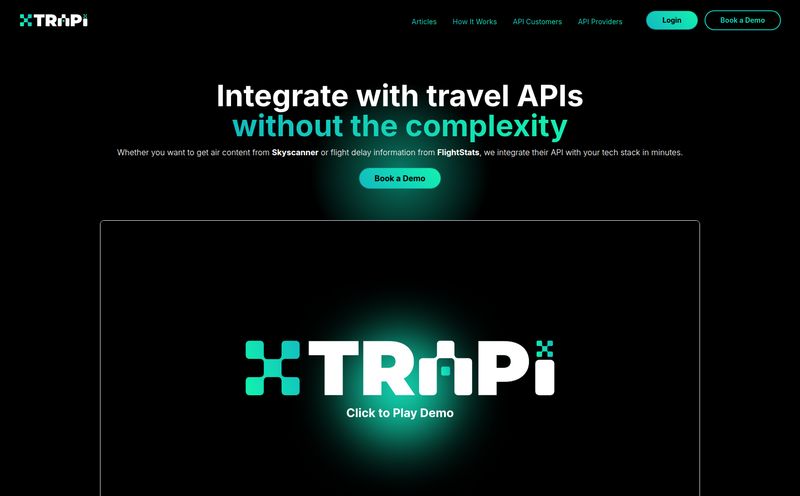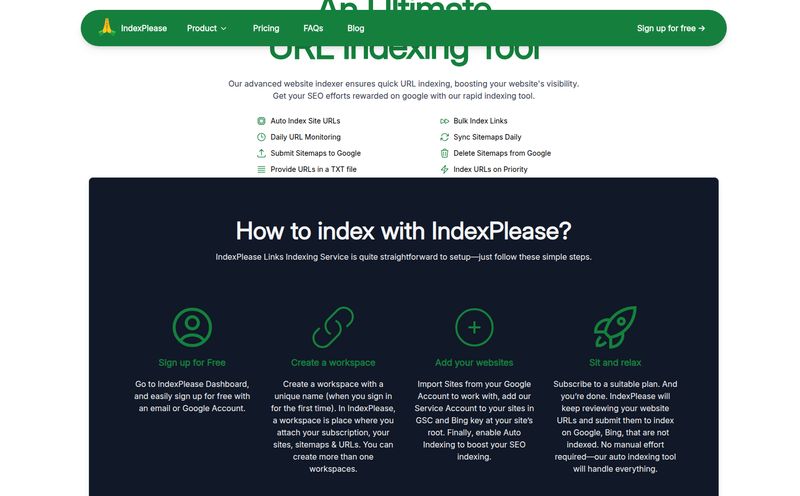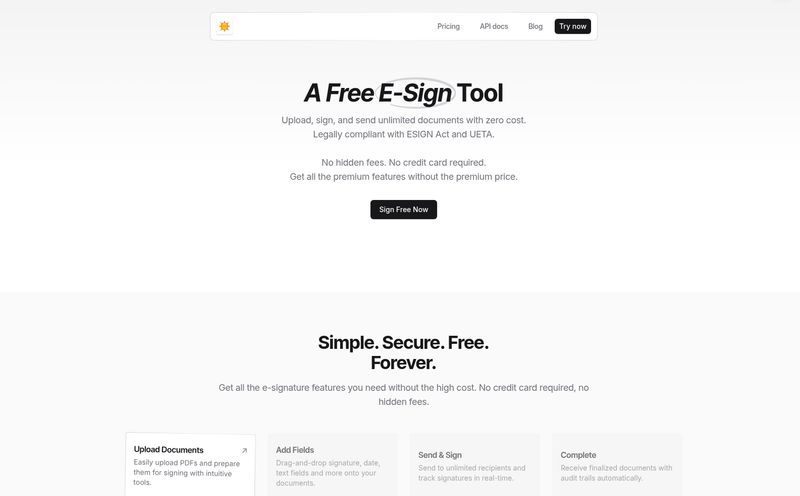Well, another one bites the dust. It's a story I've seen play out more times than I can count in my years in this industry. You find a cool new tool, it starts to get a little bit of buzz, you think about integrating it into your workflow, and then...poof. You visit the site one day and you’re greeted with a farewell letter. This time, the tool in question is Clearword.
If you're reading this, you probably fall into one of two camps: you were a Clearword user wondering what happened, or you heard the name somewhere and came to check it out, only to find the digital equivalent of a "Closed for Business" sign hanging on the door. Either way, it’s a bummer. There's always a sense of disappointment when a startup with potential doesn't make it. It feels like a small dream dying.
First, A Quick Eulogy: What Was Clearword?
For those who missed its brief time in the sun, Clearword was an AI-powered meeting assistant. You know the type—it would join your Zoom, Google Meet, or Teams calls and act as your personal scribe. The goal was to liberate you from the tyranny of frantic note-taking. It promised to generate summaries, action items, and full transcripts automatically. In a world of back-to-back virtual meetings, a tool like this isn't just a nice-to-have; for many of us, it's a lifeline.
The idea was solid. The execution seemed pretty slick from the demos I saw. But a good idea isn't always enough to survive the brutal reality of the tech market.
The Goodbye Note on the Door
When you go to their site now, you're met with a simple, classy message. No drama, no blame game, just a heartfelt thank you. Here’s what it says:

Visit Clearword
"After careful consideration, we have made the very difficult decision to close our doors." You can almost feel the weight behind that sentence. It speaks to late-night meetings, stressful spreadsheets, and the gut-wrenching moment you realize the runway has run out. They thank their customers and investors, which is the right thing to do. It’s a graceful exit, and you have to respect that. But it still leaves us asking the big question...
So, What Actually Happened to Clearword?
The farewell note doesn’t give specifics, and they rarely do. But having been around the block a few times, you learn to read between the lines. The shutdown of a SaaS startup like Clearword is almost never due to one single thing. It’s usually a perfect storm of factors. My money’s on a combination of these usual suspects.
The AI Scribe Market is a Bloodbath
Let's be honest, the AI meeting assistant space is ridiculously crowded. It's a classic red ocean, teeming with well-funded sharks. When you're competing against giants like Otter.ai, a massively popular tool with huge brand recognition, and aggressive up-and-comers like Fireflies.ai and Fathom, just being "good" isn't enough. You have to be different. You need a unique selling proposition (USP) that's so compelling it can pry users away from established habits and platforms. Without a killer feature or a hyper-specific niche, it's incredibly difficult to get the traction needed to survive.
The Monetization Maze
Figuring out how to charge for a service like this is a nightmare. Do you go freemium to attract a large user base, but risk them never converting to paid plans? Do you charge per user, per hour of transcription, or on a tiered feature model? Each path has its own perils. If your free plan is too generous, you burn through server costs with no return. If your paid plan is too expensive or restrictive, you can't compete with the free offerings from bigger players. Finding that sweet spot where value and price align is an art, and many startups wipe out while trying to get the mix right.
Cash Burn and the VC Clock
Most startups like Clearword run on investor cash. That cash isn't a blank check; it comes with expectations and a ticking clock. Investors want to see growth—more users, more revenue, more market share. If those metrics start to flatten out, or if the cost to acquire a new customer (CAC) is higher than the lifetime value (LTV) of that customer, the people with the money get nervous. When it’s time for the next funding round, if the numbers aren’t there, the well dries up. And when the money’s gone, the lights go out. It's a brutal, but simple, equation.
The Silver Lining: Lessons and Alternatives
A startup's failure is always sad for the team involved, but it provides valuable lessons for the rest of us. For users, it's a stark reminder not to put all your digital eggs in one basket, especialy with new, unproven tools. Always have a plan B. For other founders, it underscores the absolute necessity of differentiation and finding a sustainable business model from day one.
But enough with the doom and gloom. You came here needing a solution, and I won't leave you empty-handed. If you were a Clearword user or were thinking of becoming one, here are some fantastic, and more importantly, stable, alternatives.
| Tool | My Two Cents |
|---|---|
| Otter.ai | The OG of the group. It's reliable, the transcription is top-notch, and it integrates with just about everything. Its free plan is less generous than it used to be, but it's a solid, enterprise-ready choice. |
| Fireflies.ai | Fireflies is another heavyweight. I like its focus on conversation intelligence and analytics, which is great for sales teams. It's a bit more data-driven than some of its competitors. |
| Fathom | Fathom has gained a massive following, largely because its core product for individuals is free. It makes money from team features. The user interface is beautiful, and it's incredibly easy to use. Honestly, for most individuals and small teams, this is where I'd start. |
There are others, of course, like Sembly AI and Avoma, but the three above are the market leaders for a reason. They've found their footing and have large enough communities to suggest they'll be around for a while.
Frequently Asked Questions About Clearword's Shutdown
- 1. What exactly was Clearword?
- Clearword was an AI-powered software tool designed to record, transcribe, and summarize online meetings from platforms like Zoom and Google Meet, aiming to automate the process of creating meeting notes and action items.
- 2. Why did Clearword shut down for good?
- The company didn't state an official reason, which is common. However, shutdowns like this in the tech industry are typically caused by a combination of intense market competition, challenges in finding a profitable business model, and the inability to secure further funding from investors.
- 3. Can I still access my data from Clearword?
- Unfortunately, it is highly unlikely. When a service shuts down abruptly, user data usually becomes inaccessible unless the company provided a specific window and tool for data export prior to closing. Check any final emails you may have received from them for instructions, but I wouldn't be optimistic.
- 4. What are the best Clearword alternatives in 2024?
- The top alternatives that are well-established include Otter.ai, Fireflies.ai, and Fathom. Fathom is particularly popular for its excellent free offering for individuals, while Otter and Fireflies are robust choices for teams and businesses.
- 5. Is the AI meeting assistant market a safe bet?
- It's a volatile but growing market. The core technology is becoming a commodity, so the companies that will win are those that build the best user experience and integrations around it. I'd advise choosing one of the established players for any critical work.
A Final Thought
Pour one out for Clearword and the team behind it. Building something from nothing is incredibly hard, and even when it doesn't work out, the effort is commendable. Their story is a classic startup tale and a valuable lesson for everyone in the tech ecosystem. As for the rest of us, the quest for the perfect, productivity-boosting tool continues. Onward.



